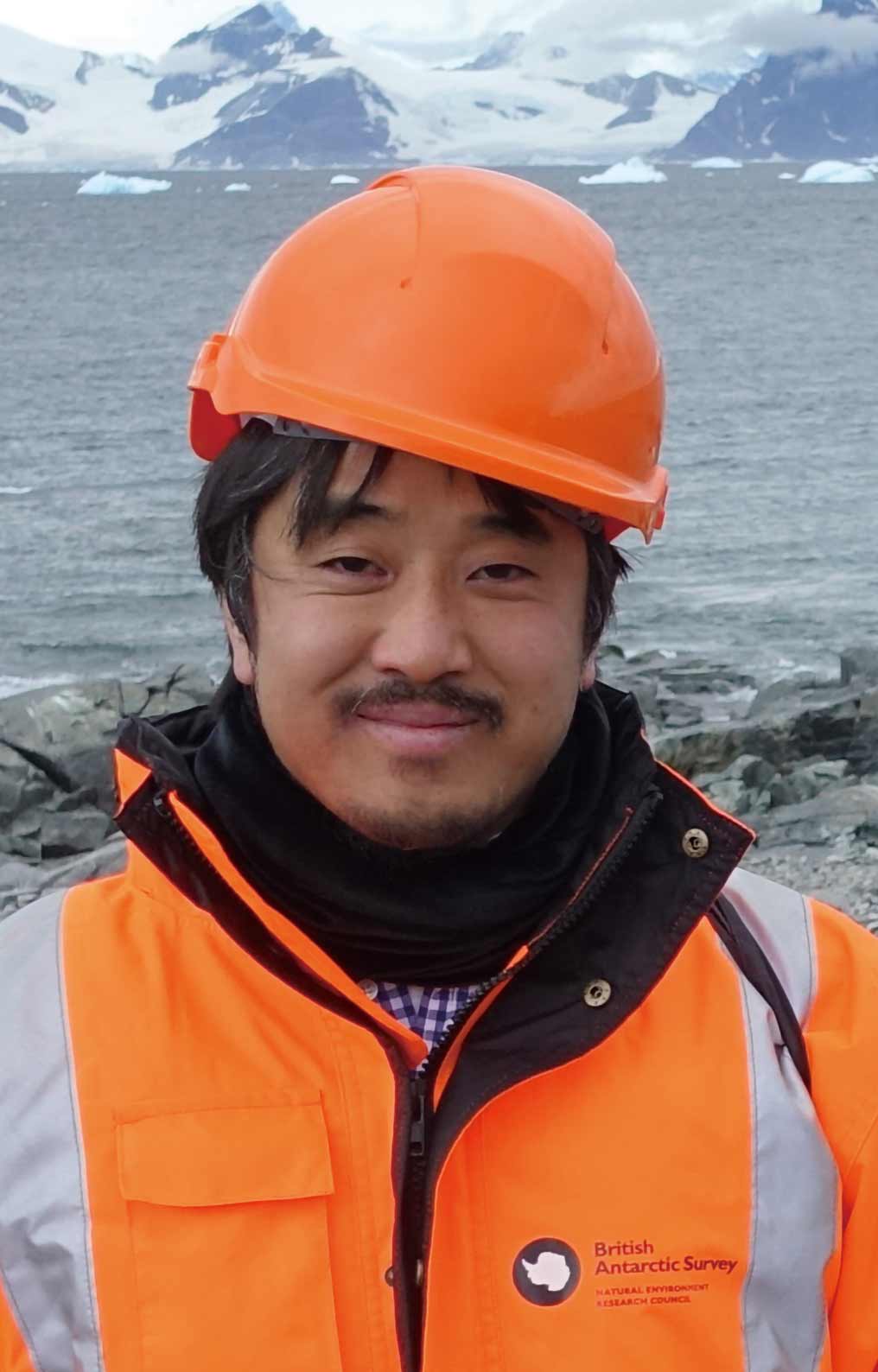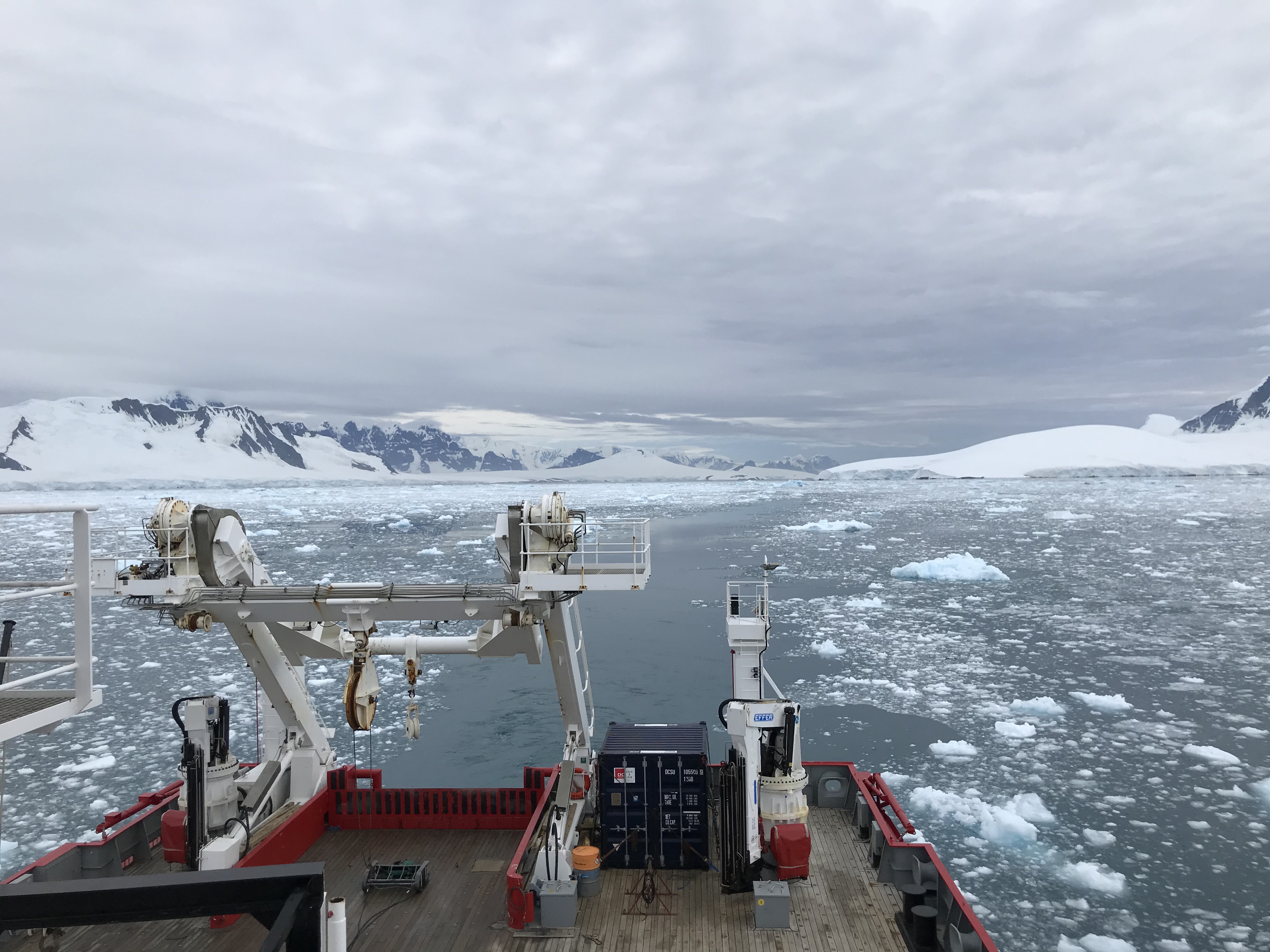Disclaimer: machine translated by DeepL which may contain errors.
Practice of Overseas Study
Atsutaro Shirai, Associate Professor, Atmosphere and Ocean Research Institute

I believe that an overseas experience has a life-changing impact. One of the reasons I decided to become a researcher was the international nature of my work, which allows me to travel to many different countries. The theme of my research in earth science has allowed me to travel to places that are normally difficult to visit, such as the middle of the ocean and Antarctica, and this has motivated me to further develop my research.
I believe that overseas experience is meaningful and irreplaceable in research. I had the opportunity to spend a year at the University of Mainz, Germany, as a postdoctoral fellow, and then six months at the University of Melbourne until February 2023*. I also spent less than two months as the sole Japanese researcher on a British Antarctic research ship. I am sure that there are many more people with more extensive overseas research experience than I have, but I have been able to accumulate a fair amount of experience, and I feel that my youthful hopes have been fully fulfilled. Every time I have experienced overseas research, I have strongly felt that my thought process and perspective have been broadened, as if to say, "It is because I did research overseas at that time that I was able to think in this way. To have this kind of experience, it is not enough to be a "guest" only for a short stay for experiments. There are so many things to be noticed and learned from ordinary, everyday conversations, such as discussions at seminars, chatting over meals and tea, sharing drinks, and working together on research. There are many things that can only be learned by becoming fully integrated into the local community. Recognizing and experiencing the diversity of values and perspectives and incorporating them into one's own style can be a great source of nourishment.
 Photo of Antarctica taken by the British Antarctic Survey research vessel (RRS James Clark Ross)
Photo of Antarctica taken by the British Antarctic Survey research vessel (RRS James Clark Ross)I have heard that fewer and fewer young people are going abroad these days, but I would like them to have an opportunity to do research abroad at least once while they are young, even if it may seem a little far-fetched, because they will grow a lot in the long run. It is important to change the place and environment drastically, interact with various people, and have diverse experiences in order to grow. And, although it may be difficult, if your family can make it, please try to go with them. It is the social culture of the country that shapes the research culture, and I think you will experience the social culture more deeply if you go with your family.
The key to deciding where to go may vary from person to person. Some people choose big labs, while others choose up-and-coming young researchers. In my case, I was looking to find colleagues with whom I could do research for many years to come, so I decided on researchers of my own age or slightly older who had slightly different areas of expertise and who were pioneering new fields. After all, research is a human activity, so even an amazing project like "The world's most advanced joint research! are often carried out by researchers who get along well with each other. The "immersion" mentioned earlier is also important in terms of creating a research network.
In this way, overseas research is very effective in developing researchers. I strongly recommend young people to do overseas research. I would also like to make a request to the great professors. Please create an environment in which mid-career and senior researchers can take sabbaticals without hesitation so that they can do overseas research on a regular basis!
The Rigaku-bu News collects essay submissions. We welcome all submissions, regardless of whether they are self-recommended or not. We especially welcome submissions from Faculty and graduate students. However, the Communications & Public Relations Committee will decide whether or not to publish your essay.
Please send your contributions to rigaku-news@adm.s.u-tokyo.ac.jp.
Published in the September 2023 issue of The Rigaku-bu News


